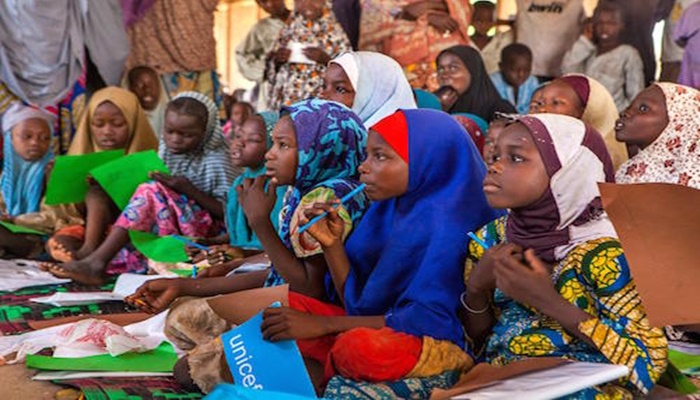Majority of Nigerian households with children have made less income since the pandemic – UNICEF
Since the COVID-19 outbreak struck two years ago, at least two-thirds of Nigerian households with children have lost income or brought in less more.
This is according to a new report published by UNICEF and the World Bank titled, “Impact of COVID-19 on the welfare of households with children.”
The analysis, which drew on data from Nigeria and 34 other nations, found that households with three or more children were the most likely to lose income, with more than three-quarters reporting a drop in earnings.
According to the research, income losses have caused adults in one out of every four households with children to go without food for a day or more.
Adults in nearly half of households with children reported skipping a meal due to a lack of money. Around a quarter of adults in households with or without children reported stopping working since the pandemic hit, the report says.
Sanjay Wijesekera, UNICEF Director of Programme Group said, “The modest progress made in reducing child poverty in recent years risks being reversed in all parts of the world. Families have experienced loss at a staggering scale. While last year inflation reached its highest level in years, more than two-thirds of households with children brought in less money. Families cannot afford food or essential health care services. They cannot afford to house. It is a dire picture, and the poorest households are being pushed even deeper into poverty,”
Children are being deprived of the basics, according to the report, with 40% of children in 40% of homes not participating in any educational activities while their schools were closed.
“The disruptions to education and health care for children, coupled with catastrophic out-of-pocket health expenses which affect more than 1 billion people, could put the brakes on the development of human capital – the levels of education, health and well-being people need to become productive members of society,” said Carolina Sánchez-Páramo, Global Director of Poverty and Equity for the World Bank. “This could lock in increases in inequality for generations to come, making it less likely that children will do better than their parents or grandparents.”
Given that data is collected at the household level, the real participation rate at the individual level is likely to be even lower, particularly for children from families with three or more children.
What you should know
Before COVID-19, one in every six children – 356 million – lived in extreme poverty, with household members surviving on less than $1.90 a day, according to the report.
Moreover, 40% of youngsters were in a state of moderate poverty. In developing nations, approximately 1 billion children lived in multidimensional poverty, a proportion that has now risen by 10% as a result of the epidemic.
The United Nations Children’s Fund (UNICEF) and the World Bank advocate for the rapid growth of social security systems for children and their families. Support, such as cash transfers and the universalization of child benefits, are important expenditures that can help raise families out of poverty and prepare them for future shocks.
Since the outbreak of the pandemic, more than 200 countries and territories have implemented thousands of social protection measures, with the World Bank providing nearly $12.5 billion to help countries implement them, reaching nearly 1 billion people world.




